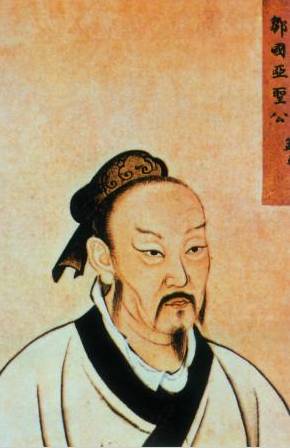Meng zi
One of the four classics of the Confucian school, the seven-chapter Meng zi (孟子Mencius) records the views of Mencius, a thinker and educator of the mid-Warring States Period, and his disciples on politics, education, philosophy and ethics, as well as accounts of some of their doings. The book is indispensable for the study of the Confuican school and its development by Mencius. Together with Da xue (Great Learning), Zhong yong (Doctrine of the Mean) and Lun yu (Analects of Confucius), Meng Zi is regarded one of the "Four Books."
Mencius was an ardent advocator of the Confucian doctrine. He developed Confucius' thinking of ren (benevolence) into the doctrine of "benevolent government," and he advanced the theory that "human nature is good," using it as the theoretical basis for this doctrine. He also advocated being modeled on the sage King Yao and King Shun, instituting the "jing-field system," "esteeming the virtuous and able," and practicing "true kingship." With regard to the relationship between the ruler and his people, he held that the people are of the first importance while "the ruler is of the least importance."
There are various opinions as to the compilation of Meng zi. One theory has it that it was composed by Mencius himself with the assistance of his disciples, chief of whom were Wan Zhang and Gongsun Chou; another theory is that it is simply a collection of the sage's sayings compiled after his death by his disciples and their pupils.
